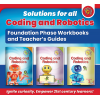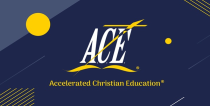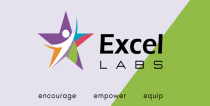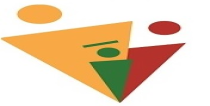Beyond Compliance: A Viable Alternative for Homeschoolers
Now that the Basic Education Laws Amendment (BELA) Act has been enacted, many home educators fear the beginning of an era of state-enforced intrusion. With compulsory registration, curriculum approval, and assessment requirements on the statue books, the expectation is that families will now be forced into rigid compliance. For some, the only hope lies in the courts declaring these provisions unconstitutional.
But this fear may be misplaced — not because the BELA Act is harmless, but because the rule of law requires more than the mere enactment of legislation. A statute’s effect depends not only on its words but also on how it is political will, interpretation and implementation. Importantly, in a constitutional democracy, legislation that undermines fundamental rights are viewed as invalid.
What did actually change?
Before BELA, home educators were fairly united in supporting the position of “lawful non-compliance”. According to this position, the registration requirements in the SA School’s Act (SASA) were inconsistent with the constitution and other laws such as the Children’s Act, and therefore it was lawful not to comply with SASA.
Did the BELA Act change this situation. The BELA Act is even more inconsistent with the constitution and the Children’s Act. See an article on this at https://www.sahomeschoolers.org/blog-items/entry/defending-the-undefendable-can-section-51-of-the-bela-act-be-justified.html
However, the BELA Act is now also inconsistent with the values of parents, a more appropriate approach is probably one of “ethical non-compliance”.
What Does the Law Actually Require?
The BELA Act introduces words that appear to empower the state to enforce universal registration and oversight of homeschooling. This is not only problematic for parents, but also makes it difficult for officials saddled with enforcing things against the will of parents.
However, key provisions — such as Section 3(5) of the Schools Act — still use discretionary language: “If a learner… is not enrolled at or fails to attend school, the Head of Department may...”
This is not mandatory language. It preserves a margin of administrative discretion and opens the door to lawful non-enforcement. But more importantly, it highlights a fundamental legal truth: just because a law exists does not mean it must be enforced in a way that violates constitutional rights.
Under South Africa’s supreme Constitution, any enforcement of BELA must respect the rights of parents to choose the form and content of their children’s education (Section 29(3)), and their duty to act in their children’s best interests (Section 28(2)). Coercive interpretations that impose top-down curriculum control, deny educational diversity, or intrude into family life without cause are constitutionally suspect — and vulnerable to challenge.
Two Legal Readings: Coercion vs. Freedom
The BELA Act can be interpreted in two broad ways:
The Coercive Interpretation
This reading sees BELA as a tool for enforcing state control over home education — via mandatory registration, pre-approved curricula, and regular oversight. But this interpretation is:
- Constitutionally questionable,
- Logistically unfeasible, and
- Administratively burdensome.
The Voluntary, Rights-Respecting Interpretation
This approach understands the law within its constitutional context. It reads BELA as enabling registration for those who want it, not as requiring it for all — especially in cases where enforcement would violate rights, undermine family autonomy, or serve no rational educational purpose. Section 3(5) of the Schools Act uses discretionary language ("may"), meaning enforcement is not compulsory. This leaves room for treating registration as a supportive administrative mechanism, not a mandatory obligation.
State Capacity and Legal Certainty
Even if the state wanted to implement a coercive regime, does it have the legal and logistical means?
The principle of legality requires laws to be clear, predictable, and not arbitrary. BELA’s vague language about “alignment” with the national curriculum, for example, risks inconsistent application across provinces. This undermines legal certainty — and invites legal challenge.
Moreover, large-scale enforcement would require financial and human resources the state does not have. As a result, attempts to enforce a coercive system could backfire — triggering litigation, civil resistance, and loss of legitimacy.
A Strategic Alternative: Propose, Don’t Just Protest
If the coercive reading of BELA is both unlawful and impractical, then the real opportunity lies in shaping its implementation.
Cape Home Educators (CHE) has taken this path. In a meeting with the Western Cape Education Department on 31 July 2025, CHE proposed an automated, voluntary registration system as a rights-respecting alternative to top-down control. Mr. Alan Meyer of the WCED welcomed the idea and invited a formal submission. This provides a vital window for civic influence.
Conclusion: Be Watchful, Not Fearful
BELA, like all legislation, exists within the framework of constitutional supremacy and the rule of law. It does not—and cannot—override parental rights without justification. While vigilance is essential, panic is not.
The real challenge is not simply what the law says, but how it is applied — and whether civil society stands firm in defense of freedom. With the right strategy, homeschoolers can turn this moment into a precedent-setting example of lawful resistance, constructive engagement, and constitutional courage.

Comments
Events
Has no connect to show!
Legal & Research
Homeschooling and the law
Home schooling was recognized in 1996 in Section 51 of the SA Schools
+ ViewCentres
Homeschool ABC
Support
Curriculums
Frequently Asked Questions
-
Do home learners sometimes wish they were in school and were normal?
They generally like being homeschooled. Some homelearners go to school for the experience but many return to homeschooling as within the homeschool...
-
How does homeschooling work?
Homeschooling is different for every family as it depend on the parents educational goals for their children Education is the development of the...
-
Is homeschooling legal in South Africa?
Yes. Since 1994, the right for parents to home educate their children was legalised in South Africa through the adoption of the new constitution. In...
-
Where can I find homeschool support groups?
There are many support groups consisting of parents that do things together and help each other. These groups operate on Facebook, mailing lists and...
Has no content to show!





























